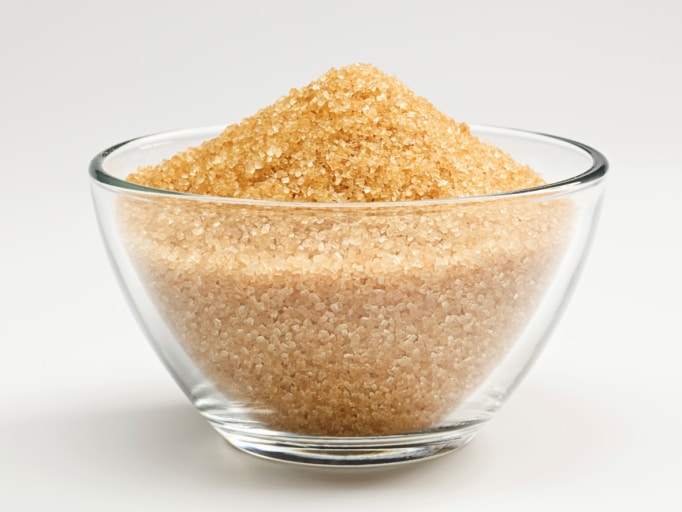Advanced Cane Sugar Processing: Enhancing Performance and Sustainability
Advanced Cane Sugar Processing: Enhancing Performance and Sustainability
Blog Article
A Comprehensive Overview of the Wellness and Economic Effects of Cane Sugar Handling on Neighborhood Areas
Walking stick sugar handling plays a pivotal role in shaping the economic landscape of local areas, offering work opportunities and stimulating secondary industries. The health and wellness implications associated with high sugar intake can not be neglected, as they contribute to climbing rates of excessive weight and diabetic issues.
Economic Advantages of Walking Stick Sugar Processing
Walking stick sugar processing offers significant economic benefits that extend past the immediate farming sector. The cultivation and processing of sugarcane create various task opportunities, from farming to manufacturing and distribution. This work generation not only sustains regional economies yet additionally promotes area growth by providing steady income sources for households.
Additionally, the sugar market promotes ancillary businesses, including transportation, tools supply, and product packaging solutions (Cane Sugar Processing). As these sectors grow, they contribute to an extra durable economic framework, boosting total community durability. The export potential of refined cane sugar better intensifies financial benefits, placing regions as affordable players in international markets
Investment in modern-day handling facilities can cause increased performance and effectiveness, thereby lowering waste and optimizing resource usage. This change not just profits the local economy yet also supports sustainability initiatives by minimizing environmental effects.
Additionally, the revenue created from cane sugar processing can be reinvested in local framework, education, and medical care, promoting holistic community growth. Generally, the financial advantages of walking cane sugar handling are complex, giving a structure for enduring success in farming areas.
Health Dangers Connected With Sugar Intake
Too much sugar usage poses significant wellness threats that require serious interest. High consumption of added sugars, specifically from processed beverages and foods, has been linked to many health complications.
Additionally, high sugar intake is connected with cardio disease. Elevated blood sugar degrees can result in insulin resistance, a precursor to different heart-related issues. In addition, sugar can have detrimental results on dental wellness, resulting in dental caries and periodontal illness, as bacteria in the mouth grow on sugar, producing acids that wear down tooth enamel.
Additionally, emerging research study suggests a prospective link in between high sugar usage and psychological wellness conditions, such as anxiety and stress and anxiety. As neighborhoods face these health threats, it ends up being vital to advertise recognition and motivate healthier dietary options. Resolving sugar consumption is vital not just for specific health yet additionally for the overall wellness of neighborhood areas, emphasizing the demand for thorough public health and wellness strategies.
Ecological Effects of Sugar Manufacturing
Regularly overlooked in conversations concerning sugar's effects is the substantial ecological effect of sugar production. The farming of sugarcane frequently requires extensive land use, causing deforestation, loss of biodiversity, and disturbance of regional communities. The conversion of woodlands and marshes right into sugar plantations can lead to environment destruction, harmful numerous varieties and changing ecological equilibrium.
Additionally, sugar manufacturing is resource-intensive, consuming considerable quantities of water for irrigation. This can bring about depletion of local water resources, adversely affecting both agricultural techniques and neighborhood access to tidy water. Additionally, the use of chemical plant foods and pesticides in sugarcane farming can add to dirt deterioration and water contamination, as runoff from these chemicals gets in neighboring rivers and lakes, influencing marine life and human health.
The ecological footprint encompasses the processing phase, where energy intake and waste generation further exacerbate ecological issues. Air pollution from shedding sugarcane areas, in addition to greenhouse gas exhausts, add to climate change. Because of this, the ecological ramifications of sugar production warrant serious consideration, prompting stakeholders to take on even more sustainable practices to alleviate these unfavorable effects on local environments and neighborhoods.
Work Creation and Community Growth
The environmental challenges postured by sugar production are commonly counteracted by its potential for economic advantages, specifically in work development and neighborhood advancement. The cane sugar industry functions as a substantial source of employment in many backwoods, supplying work across different ability levels, from agricultural labor to handling and distribution functions. This work not only supports private families however additionally adds to the general read this financial vigor of regional neighborhoods.
Moreover, the facility of sugar processing centers promotes supplementary organizations, such as transport solutions, tools supply, and maintenance carriers. As these organizations prosper, they view produce additional jobs and strengthen neighborhood economic situations. The income created from the sugar sector also brings about enhanced tax obligation incomes, which can be reinvested into social work such as medical care, framework, and education and learning growth.
Furthermore, the sugar sector frequently engages in community advancement efforts, such as sustaining local schools and health and wellness programs, thereby enhancing the high quality of life for citizens. By cultivating strong community connections and promoting financial growth, the walking cane sugar processing field plays a crucial duty in uplifting regional populaces, making it a vital component of sustainable advancement methods in sugar-producing regions.
Harmonizing Health and Economic Development
In browsing the complexities of walking cane sugar handling, a vital challenge hinges on balancing health and wellness considerations with economic growth. The sugar sector considerably contributes to regional economies by generating jobs, stimulating relevant fields, and enhancing tax obligation revenues. Nonetheless, the health ramifications connected with extreme sugar consumption can bring about chronic conditions such as obesity, diabetic issues, and cardiovascular concerns, which can worry public wellness systems and decrease workforce productivity.

Additionally, governing structures can play a critical function in guiding sector practices towards even more health-conscious and lasting strategies. By cultivating see this site partnership in between government bodies, health and wellness companies, and the sugar industry, neighborhoods can browse the dichotomy of wellness and financial growth, guaranteeing that the benefits of cane sugar processing are equitably shared while focusing on public health.
Final Thought
Finally, the processing of cane sugar offers both significant economic advantages and significant wellness threats for neighborhood communities. While it fosters job creation and boosts regional advancement, the connected health problems, specifically pertaining to excessive weight and diabetes, demand a mindful balancing act. By advertising responsible consumption and investing in community education and sustainable methods, it is feasible to make the most of economic benefits while minimizing damaging health and wellness impacts, therefore making sure a much healthier future for regional populaces.
Furthermore, sugar can have damaging effects on dental wellness, resulting in dental caries and gum illness, as microorganisms in the mouth grow on sugar, producing acids that erode tooth enamel.
Resolving sugar intake is vital not only for specific health however additionally for the total well-being of neighborhood communities, stressing the need for extensive public wellness methods.
Regularly neglected in discussions concerning sugar's effects is the significant ecological effect of sugar production. The wellness effects linked with extreme sugar consumption can lead to chronic conditions such as excessive weight, diabetes mellitus, and cardio problems, which can burden public health and wellness systems and lessen workforce performance.

Report this page